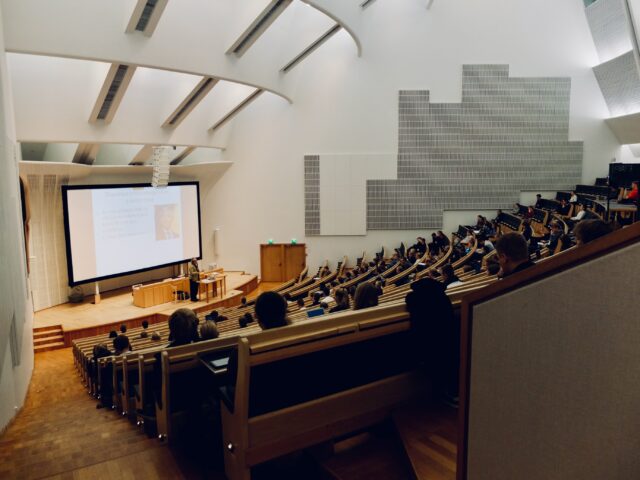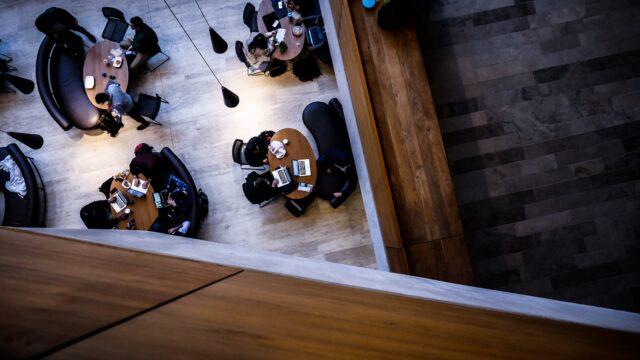The Gabriel Dumont Institute and Saskatchewan Indian Institute of Technology have announced new health-related programming. GDI’s Dumont Technical Institute and SIIT have partnered to offer a new two-year Mental Health and Wellness diploma program. The program covers topics such as wellness, youth care, addictions, case management and assessment, and Indigenous models of healing. Graduates will be prepared for work as social and community service workers in a variety of workplaces. The Government of Saskatchewan will be increasing access to healthcare education opportunities in 2023-24 with approximately 550 new training seats in postsecondary programs that include the new Phlebotomy Program and an Indigenous Birth Support Worker Program at GDI and a Health Care Aid Program at SIIT.

Indigenous Top Ten News
August 9, 2023
As the summer continues, Indigenous youth across Canada are participating in summer learning activities and camps. In New Brunswick, the Seventh Generation Culture Camp offered Mi’kmaq youth a week-long land-based camp focused on strengthening connections with culture, people, and the land. Youth from Cree nations in northern Ontario took part in a medical camp hosted by Queen’s University where they learned skills such as suturing wounds and giving ultrasounds. Western University held the Mini-University Program, which teaches youth about the university and gave them opportunities to participate in a variety of activities including a sacred fire at the Wampum Learning Lodge, swimming at the Recreation Centre, and learning about fossils and minerals. In Thunder Bay, the Aki Kikinomakaywin: Learning on the Land STEAM program gave Indigenous youth the opportunity to visit Anemki Wajiw, participate in a Water Walk along the McIntyre River, spend a day at the School of Indigenous Learning, and more. The University of Lethbridge and Lethbridge College co-hosted the Outland Youth Employment program, which taught students about future education options and shared information about what programs they might be interested in. The University of Calgary and De Beers Group hosted a group of Indigenous girls from the Northwest Territories for a STEM Camp, where they learned about robotics, mathematics, stars, and more.
The Government of British Columbia recently made two investments into Indigenous postsecondary education. BC has made a $23.4M investment over the next three years into Indigenous-led postsecondary education programs, training, and supports: $20.1M of the funding will go toward First Nations-mandated institutes, $3M will go toward First Nations language-fluency degrees, and $340K will go toward the Chief Joe Mathias British Columbia Aboriginal Scholarship Fund. The province also announced that it will be providing $1.65M to the Métis Nation British Columbia over the next three years to explore a new Métis postsecondary institution model and opportunities to strengthen the Michif language. “We know how important language is to the preservation of culture and the exploration of a new Métis post-secondary institution model is one important way we can help support these efforts,” said BC Minister of Indigenous Relations and Reconciliation Murray Rankin. An additional $145K will go toward expanding financial supports for Métis postsecondary students.
Language instructors in the Yukon are using a new method for teaching Indigenous languages to foster Gwich’in speakers. The Paul Creek Method was first developed for the Salish language and has since been adapted to teach other Indigenous languages. The adaptable method uses recordings of fluent speakers for training so that those who are not fluent can still teach the curriculum. Chris Parkin, one of the program’s co-creators, said that 19 Indigenous language communities around the world have adopted the system to promote language revitalization. Sophia Flather, who is organizing a Gwich’in language course for teachers in Old Crow, Yukon, said she feels that she has a responsibility to keep her language alive. “It can be a heavy thing to carry because you are learning and at the same time you are developing curriculum and at the same time you’re teaching,” said Flather. “I just think in language work you always wish you could do more […] but, you never know how a little bit of work could really make a huge difference.”
Dalhousie University’s Faculty of Engineering has partnered with Ulnooweg Education Centre to improve educational opportunities in engineering for Indigenous students. The partners will lay the groundwork for an Indigenous stream of the Inclusive Pathways to Engineering Careers Program over the next year. This program will remove barriers for equity-deserving students by providing tailored supports, resources, and opportunities. “Indigenous peoples have been solving complex engineering problems across Turtle Island for time immemorial,” said Dal Faculty of Engineering Dean Dr John Newhook. “Our partnership with Ulnooweg will enhance opportunities to practice Etuaptumumk — the gift of multiple perspectives, which is also referred to as Two-Eyed Seeing.” Other local donors and partners include CBCL Limited, EverWind Fuels, and Dr Bernard and Ann MacIsaac.
A recent article from the University of Manitoba’s students’ newspaper The Manitoban discusses how four Indigenous scholars have resisted colonialism and cultural genocide in order to pursue postsecondary education. Lorraine Seymour, who survived the residential school system and recently graduated from UManitoba with a Master of Social Work — Indigenous knowledges (MSW—IK), discussed her educational journey at Trent and UManitoba, including the aspects of campus that were triggering and the exceptional support offered by the Elders and Knowledge Keepers. UManitoba associate Vice-President Indigenous: Curriculum, Scholarship and Research Cary Miller discussed the challenges presented by bureaucracy, such as accommodating smudging and guiding meaningful change at the institution. Two leaders from student associations at UManitoba—Kayla Shaganash and Ishkode Catcheway—shared their experiences at the university and how the sense that “institutions were never meant for Indigenous people to be in” drove them to engage in student politics. “I’m going to make space for myself here,” said Shaganash. “The reason I’m in university is to face these issues and to have these difficult conversations head on, and not be taken down by them the way I was before.”
A recent report from the Government of the Northwest Territories shows that the territory has seen an improvement in access to skilled trades training and certification. The report measures success in the implementation and advancement of objectives. The report authors note that Indigenous participation in the trades has increased from 51% of new apprentices being Indigenous in 2016 to 59% in 2021-2022. The completion rates for Indigenous apprenticeships have remained constant, but low, indicating that Indigenous individuals may be taking longer to complete their apprenticeships. Overall, NWT saw an improved awareness of skilled trades training and certification, improved employer and apprentice satisfaction, and significant growth in participation in the Schools North Apprenticeship Program.
Sooke School District students, families, and community members are fostering communal spirit with dinners and events that bring the community together. Jon Carr of the Metis Nation of BC and the Metis Nation of Greater Victoria, who works as the principal of the Na’tsa’maht Indigenous Team with Sooke School District, helped organize the dinners to bring together students, First Nations families, and local community members. “The majority of (Sooke School District) students are living in urban areas and not in their home communities,” said Carr. The communal events included an Urban Indigenous Dinner that was catered by a local parent as well as a student drum group with an elder performing songs; a Sc’ianew Nation Dinner at the Hans Helgesen School, which included the gifting of names for a new school shed, a learning forest, and the school; and a dinner at T’Sou-ke Nation at Saseenos Elementary School that included a language lesson.
The Yukon First Nation School Board has announced that it will be making changes to the way that students are taught to read. After reflecting on data about literacy rates in the Yukon, trustees revised the school board’s literacy programs to better support student learning. The new approach sees schools moving away from “balanced literacy,” where students look for context clues or use the first letter of the word to figure out what the word might be, to a “structured literacy” approach that teaches students skills such as phonological awareness, phonics, fluency, vocabulary, and comprehension. Teachers will receive training ahead of the school year and literacy coaches will visit schools to offer support. “It’s really empowering for kids who are learning to read, especially for kids who need that really explicit road map into the really, you know, quirky world that can be the written English language,” said executive director of the LDAY Centre for Learning Stephanie Hammond.
University of Calgary’s Nickle Galleries is currently hosting The Devotion: Louis Riel Writes Home exhibit, which CBC says includes never-before-seen writings by the Métis leader. The exhibit—which has been digitized for broader access—consists of two notebooks and 37 letters sent to and from close family members, several of which were written during his exile from Manitoba. “Those are sort of the lost years of Louis Riel,” explained UCalgary Rare Books and Special Collections librarian Annie Murray. When the in-person exhibition ends, Turtle Island News reports that the collection could be shared more broadly or become a travelling collection with a new curator. The Manitoba Métis Federation has been working to repatriate many of Riel’s works and belongings from Canadian museums, reports CBC, and is interested in the collection. MMF minister Anita Campbell stated that they would like to build a relationship with the university and work out a loan of the collection for display at the Métis National Heritage Centre, which will open in 2026. “It’s not just a letter, it’s not just an artifact, it’s not just a document — it’s our history,” said Campbell. “It’s part of who we are. He is part of who we are.”
